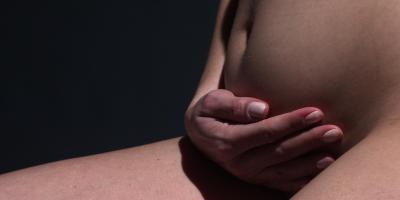Sodium and chlorine found in domestic salt play many important roles., For example, they regulate arterial blood pressure and take part in the control of fluid balance in the body. However, an excess of it can have disastrous effects on our health.
Sodium and chlorine also ensure favourable conditions facilitating the work of the muscles and the nervous system. Sodium also participates in the active absorption of many nutritious components, for example glucose and amino acids.
However, Poles definitely eat too much salt. We like salty food and use the saltshaker much too often. Specialists advise us to try to limit the amount of salt and replace it with other seasonings.
How much salt do we need?
The requirement for sodium depends on age, activity and environment temperature. It is higher when we, for example, sweat due to physical activity or heat. It is also higher during, for instance, menstruation and breastfeeding.
According to the National Food and Nutrition Institute (IŻŻ) the average consumption of sodium is from 2 to 6 g daily, although the body does not need more than 0.5 g a day. IŻŻ states that 1g of sodium corresponds to approximately 2.5 g of salt.
“Too much sodium in diet causes increased urinary calcium excretion, which may lead to kidney stones," warns the IŻŻ.
The long-term consumption of large amounts of salt is a risk factor of high blood pressure. It may also be connected with strokes.
There is also a higher risk of stomach cancer, because the salt can damage the mucous membrane of the stomach.
How much salt do Poles eat?
The total annual consumption of sodium chloride (domestic salt and sodium found in the food, converted into salt) is approximately 2.5 times higher in Poland than recommended by the World Health Organisation (WHO).
According to the IŻŻ, the basic sources of sodium in Polish homes are cereal products, meat and milk products.
Also according to the IŻŻ, the amount of salt in bread is approximately 1.4-1.8 %; in ripened cheeses it ranges from approx. 1.5g/100g to over 4.7g/100g of the product, and in cured meat from approx. 1.4g/100g to almost 4g/100g.
Various types of cereals, sauces and instant dishes also contain high amounts of sodium chloride.
Experts advise: we should eat less salt
Specialists from the IŻŻ aim to convince us that lowering the content of salt in most products even by a few percent could have positive effects. It can be accomplished by, for example, popularising and the broader use of substitutes for domestic salt (for example using potassium sodium salt), herbs and seasonings, both in industry and in the household.
The experts recommend to quit products with especially high amounts of salt, for example crisps, crackers, and salt sticks, and also fast foods and seasonings with high amounts of salt, for example stock cubes.
Experts recommend that instead of salt we should use seasonings. On the market there are many types seasonings, including ready-made herbal mixtures. The IŻŻ draws attention to the fact that some of them contain only seasonings, for example herbs de Provence, and some are with the addition of other ingredients such as salt, flavour and taste enhancers, aromas and food colouring (for example spice mixes for meat).









Comments (0)